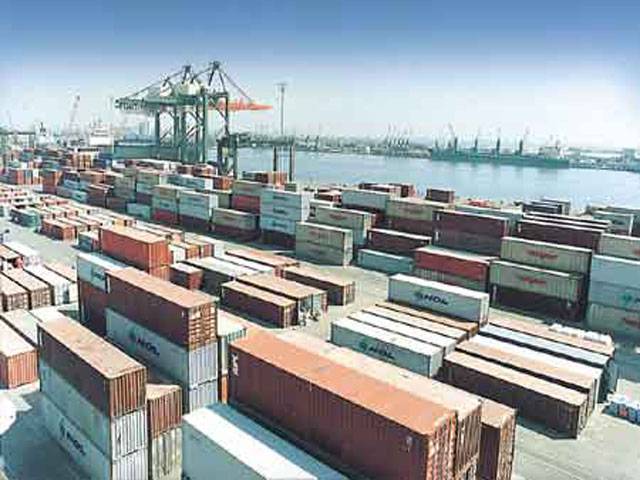ISLAMABAD - The PML-N government has eventually finalised the three-year Strategic Trade Policy Framework aimed at enhancing the tumbling exports after a long delay.
“The Ministry of Commerce will seek approval of trade policy from the federal cabinet in next few days, as Prime Minister Nawaz Sharif has cleared it,” said an official of the ministry. If the federal cabinet proposed changes, we will incorporate them into the policy, he added.
The government has proposed different measures in the STPF to boost Pakistan’s exports, which are stagnated at $24 billion level over the last three year despite the fact that country received GSP Plus status from European Union in January 2014. The status was supposed to increase country’s exports by one billion dollar annually.
The country’s exports are continuously tumbling due to the internal as well as external issues, mainly lower commodity prices and slowdown in international market. The government had reduced the exports target from initially proposed level of $100 billion to $95 billion for next three years. The government has proposed exports target at $28 billion for the ongoing fiscal year 2015-2016, $30 billion for next financial year 2016-2017 and $35 billion for the year 2017-2018 in three-year strategic trade policy framework.
The government would also allocate Rs20 billion in three years policy for the initiatives to boost the country’s exports, said the official.
Pakistan could not achieve the exports target under previous STPF tailored by Pakistan Peoples Party (PPP) government due to the non-release of funds for exports development. The government failed to achieve the exports target of $95 billion in three years, as exports remained under $70 billion mainly due to the poor law and order and energy situation in the country.
Pakistan’s exports tumbled by 14 per cent to $8.5 billion in July-November period of the year 2015-2016 from $9.9 billion of the same period of previous year, according to data of Pakistan Bureau of Statistics.
Work on the STPF started in September 2014 by inviting proposals from all stakeholders. A committee headed by Finance Minister Ishaq Dar approved the policy on August 29, but it was placed on the back-burner for more than three months. Then, the Ministry of Commerce waited for the approval of the prime minister before its submission to the cabinet for formal approval.
Projects related to engineering, rice, leather and surgical instruments sectors will be made part of the trade policy. Efforts will be made to include more items under standards and certifications. The new policy contains attractive incentive packages for the exporters who would employ new techniques and machinery to their production methods.
The new policy would target the product sophistication and diversification, market access, institutional development and strengthening and trade facilitation. The government would focus on the markets of Iran and Saudi Arabia for the export of rice. The fresh vegetables and fruits,like kinnow, mango, vegetables, potato, and onion, will be exported to markets of South East Asia and Middle East.
In the same category, exports of meat products will be promoted to the markets of Middle East as well as Iran.
Commerce Minister Khurram Dastgir Khan had also held a meeting with country’s leading economists including former governors of State Bank of Pakistan, Dr Ishrat Hussain, Shahid Kardar, Dr Faisal Bari of LUMS, and Abid Qayyum Sulehri to take their inputs for increasing country’s exports. They had pointed out the issues faced by the exporters including tax refunds, high cost of energy, tariff rationalization and private sector access to credit.
Friday, April 19, 2024
Govt finalises trade policy at last
| Commerce ministry set to seek 3-year STPF approval from federal cabinet

Punjab’s price control initiative: A welcome step
12:33 PM | April 19, 2024
PTI founder’s interim bail extended in three cases
12:00 PM | April 19, 2024
US encourages Pakistan to prioritise and expand economic reforms
11:42 AM | April 19, 2024
Hafiz Naeem takes oath as JI chief, announces anti-government movement
11:39 AM | April 19, 2024
Faizabad commission report leaked, it should be made public now, suggests Abbasi
11:11 AM | April 19, 2024
A Tense Neighbourhood
April 19, 2024
Dubai Underwater
April 19, 2024
X Debate Continues
April 19, 2024
Hepatitis Challenge
April 18, 2024
IMF Predictions
April 18, 2024
Kite tragedy
April 19, 2024
Discipline dilemma
April 19, 2024
Urgent plea
April 19, 2024
Justice denied
April 18, 2024
AI dilemmas unveiled
April 18, 2024
ePaper - Nawaiwaqt
Advertisement
Nawaiwaqt Group | Copyright © 2024





